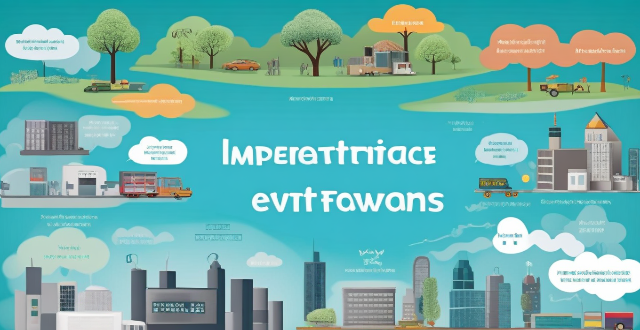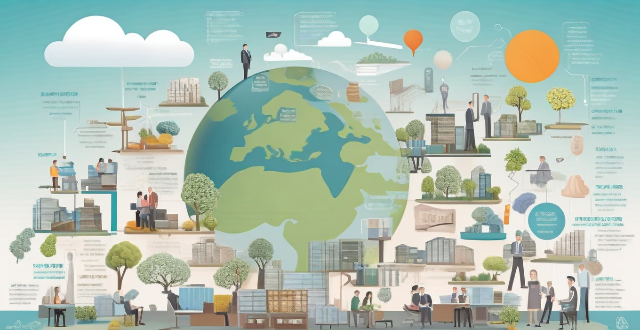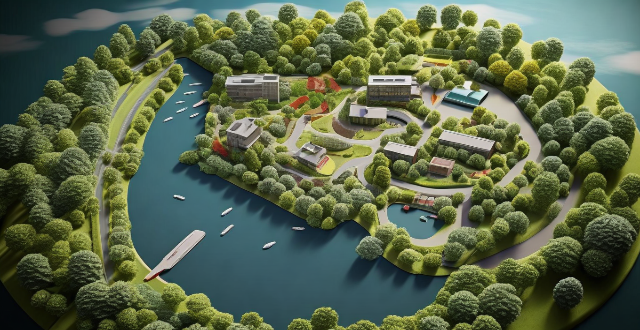Development International

How do international collaborations influence the development of rocket technology ?
International collaborations play a crucial role in the development of rocket technology by fostering knowledge exchange, sharing resources, and pooling expertise to overcome complex challenges. Here's a detailed look at how these partnerships influence advancements in this sector: 1. **Knowledge Exchange**: - **Cross-pollination of Ideas**: Collaborative efforts allow for the cross-pollination of ideas from different countries, each bringing unique perspectives and solutions to the table. This diversity of thought can lead to innovative breakthroughs that might not have been possible within a single nation's framework. - **Education and Training**: Through international partnerships, scientists, engineers, and technicians have access to educational programs and training opportunities that broaden their skill sets and keep them abreast of the latest advancements in rocket technology. 2. **Resource Sharing**: - **Financial Resources**: Developing advanced rocketry is costly. Partnerships can spread the financial burden across multiple nations, making ambitious projects more feasible and sustainable. - **Technical Resources**: Different countries may specialize in specific areas of rocket technology. By collaborating, they can share tools, facilities, and materials, accelerating research and development processes. 3. **Expertise Pooling**: - **Specialization**: Each country often has its areas of specialization. International collaborations enable the concentration of specialized knowledge and skills on particular aspects of rocket technology, leading to more efficient and effective outcomes. - **Problem-Solving**: When faced with complex engineering problems, a collaborative approach means that diverse teams can work together to find solutions more quickly and effectively than isolated efforts might achieve. 4. **Risk and Cost Sharing**: - **Reducing Individual Risk**: By collaborating, nations can share the risks associated with rocket development. This risk distribution makes it easier for countries to embark on ambitious projects without bearing the full consequences of potential failures. - **Cost Efficiency**: Sharing the costs of research, development, and manufacturing among partners can make rocket technology more affordable, allowing for greater investment in innovation rather than duplicative efforts. 5. **Global Standards and Regulations**: - **Unified Approach**: Collaboration helps in establishing global standards for safety, quality, and performance. These standards ensure consistency in the industry and make it easier for different countries to work together seamlessly. - **Compliance and Regulation**: International cooperation also facilitates the creation of regulations that govern the responsible use of space, preventing conflicts and ensuring the sustainable exploration and use of space for all nations. In conclusion, international collaborations are instrumental in propelling the development of rocket technology forward. They create an environment where resources, knowledge, and expertise are shared, risks and costs are distributed, and global standards are established, ultimately benefiting all participants in the quest for space exploration and beyond.

What role do international organizations play in climate financing ?
International organizations play a crucial role in climate financing by providing funding, technical assistance, and policy guidance to support the transition to a low-carbon economy. Their efforts are focused on mitigating the effects of climate change and adapting to its impacts, with contributions including funding from multilateral development banks and the United Nations Framework Convention on Climate Change, technical assistance from the United Nations Environment Programme and the International Renewable Energy Agency, policy guidance from the International Energy Agency and the Organisation for Economic Co-operation and Development, and collaboration and partnerships through initiatives like the Climate Investment Funds and private sector initiatives.

What is the role of international organizations in financial regulation ?
International organizations are crucial in financial regulation, promoting stability, cooperation, and coordination among countries. They set global standards, enhance coordination, provide policy advice, facilitate information exchange, and monitor market developments. The Basel Committee on Banking Supervision, International Organization of Securities Commissions, and International Association of Insurance Supervisors develop regulatory standards for banks, securities regulators, and insurance, respectively. The Financial Stability Board coordinates international financial regulation, while the Bank for International Settlements facilitates cooperation among central banks. The World Bank and IMF offer technical assistance and support for financial sector development and reform. The Committee on Payment and Settlement Systems promotes payment system stability, and the Joint Forum of Tax Administrations addresses tax evasion. The Global Financial Stability Report and Early Warning Exercises monitor market developments and emerging risks. Overall, these organizations help ensure financial stability, reduce systemic risks, and foster a more transparent and resilient global financial system.

How can universities improve their support services for international students ?
Universities can enhance support for international students by offering cultural orientation, language training, academic tutoring, writing assistance, social integration activities, career development, and internship opportunities.

How can governments support the development and implementation of sustainable energy solutions ?
Governments can support sustainable energy solutions through clear policies, financial incentives, R&D, education, infrastructure development, international cooperation, market-based mechanisms, and demonstration projects.

How do immigration policies influence international relations ?
Immigration policies have a significant impact on international relations, affecting economic partnerships, diplomatic ties, and cultural exchange. These policies can attract highly skilled workers, boost innovation, and enhance trade relationships, but they can also lead to job market issues and social tensions. Cultural diversification from immigration can improve mutual understanding and respect between nations, while restrictive policies can hinder the movement of diplomatic personnel. A country's approach to refugees and asylum seekers can influence its global standing, and the handling of refugee crises can lead to political tensions. Economic migration can cause a brain drain or be viewed as a form of development assistance. Immigration policies are a critical area of focus for international relations due to their far-reaching implications.

How do cultural exchanges through sports influence international relations ?
Cultural exchanges through sports have a significant impact on international relations by promoting mutual understanding, enhancing diplomatic relations, promoting peace and unity, providing economic and social benefits, increasing globalization, and presenting potential challenges such as nationalism and commercialization concerns. These exchanges foster understanding, build bridges between nations, and contribute to a greater sense of global community.

What is the role of international cooperation in shaping renewable energy policies ?
The text discusses the importance of international cooperation in developing renewable energy policies worldwide. It highlights three main benefits: sharing knowledge and best practices, accessing financing and investment opportunities, and addressing global challenges such as climate change, air pollution, and energy security. Examples are provided for each benefit, including technical workshops, research collaborations, policy forums, multilateral development bank loans, green bonds, private sector partnerships, climate change agreements, joint research efforts, and energy security initiatives. The conclusion emphasizes that international cooperation is crucial for accelerating the transition to a more sustainable and equitable energy system.

How can international cooperation help address the challenges of climate change and energy security ?
The text discusses the importance of international cooperation in addressing climate change and energy security challenges. It highlights the benefits of sharing knowledge, joint research and development, implementing global agreements, and access to financing and investment. The text also suggests strategies for promoting clean energy technologies, strengthening policy frameworks, enhancing capacity building, and facilitating trade and investment. Overall, the text emphasizes that international cooperation is essential for creating a sustainable future.

What role do international sports organizations play in fostering global cooperation ?
International sports organizations are crucial for global cooperation, promoting peace, cultural exchange, economic development, health, gender equality, environmental sustainability, and humanitarian aid.

Can you provide examples of successful international cooperation initiatives ?
Successful International Cooperation Initiatives International cooperation is a vital aspect of global progress, enabling countries to work together towards common goals. Here are some examples of successful international cooperation initiatives: 1\. The United Nations Framework Convention on Climate Change (UNFCCC) aims to stabilize greenhouse gas concentrations in the atmosphere at a level that prevents dangerous human interference with the climate system. It has been ratified by 197 parties, making it one of the most widely accepted international agreements. 2\. The World Health Organization (WHO) is the directing and coordinating authority on health within the United Nations system. It provides leadership, research, norms and standards, and technical support to countries worldwide. 3\. The International Space Station (ISS) is a joint project among five space agencies: NASA (United States), Roscosmos (Russia), JAXA (Japan), ESA (European Space Agency), and CSA (Canadian Space Agency). It serves as a microgravity and space environment research laboratory. 4\. The Convention on International Trade in Endangered Species (CITES) is an international agreement between governments aimed at ensuring that international trade in wild animals and plants does not threaten their survival. It regulates or bans trade in species listed in its appendices.

What role does international cooperation play in enhancing global health security ?
In the realm of global health security, international cooperation plays a pivotal role. This collaboration among nations and organizations is crucial for addressing health challenges that transcend borders. Here's how international cooperation enhances global health security: ## Surveillance and Early Warning Systems - **Global Surveillance Networks**: By sharing information on disease patterns and potential threats, countries can work together to detect and respond to emerging health risks more effectively. - **Joint Research Efforts**: Collaborative research initiatives help to identify new pathogens and develop diagnostic tools, treatments, and vaccines. ## Strengthening Health Systems - **Capacity Building**: Weaker health systems can be supported through knowledge transfer, training programs, and infrastructure development. - **Resource Allocation**: International aid and funding can target areas most in need, improving healthcare access and quality. ## Coordinated Response to Health Crises - **Disaster Relief**: In times of crisis, such as natural disasters or large-scale outbreaks, international teams can provide urgently needed medical assistance. - **Policy Harmonization**: Aligning policies and procedures across countries ensures a cohesive approach to managing public health emergencies. ## Research and Innovation - **Technology Transfer**: The exchange of innovative medical technologies and practices can lead to better prevention and treatment options globally. - **Collaborative Trials**: Multi-country clinical trials accelerate the evaluation and adoption of new interventions. ## Education and Training - **Skill Development**: International educational programs prepare healthcare workers with the latest knowledge and skills. - **Public Awareness Campaigns**: Joint efforts in public health education can improve global health literacy and promote preventive measures. ## Norms and Standards - **Harmonization of Regulations**: Uniform standards for drugs, vaccines, and medical devices ensure quality and safety worldwide. - **Ethical Guidelines**: International ethical standards protect research participants and ensure the integrity of scientific endeavors. ## Financial Support - **Investment in Health**: International financing mechanisms provide critical funding for health programs. - **Economic Stabilization**: Financial support during health crises can prevent economic collapse in affected regions. ## Information Sharing - **Transparency**: Open communication about health issues encourages trust and cooperation among nations. - **Best Practices**: Sharing successful strategies helps all countries learn from each other's accomplishments and mistakes.

Are there any international standards for carbon credit systems ?
There are several international standards and protocols that govern carbon credit systems, including the Climate Action Reserve (CAR), the International Carbon Reduction and Offset Alliance (ICROA), and regional and national standards such as the European Union Emissions Trading System (EU ETS) and the North American Carbon Programme (NACP). These standards ensure the credibility, transparency, and integrity of carbon offset projects by setting rigorous guidelines for project developers to follow. By adhering to these standards, organizations can demonstrate their commitment to combating climate change and contribute to a more sustainable future.

Can you explain the Kyoto Protocol and its impact on international climate policy ?
The Kyoto Protocol, an international environmental treaty adopted in 1997 and effective from 2005, is a legally binding agreement aimed at reducing greenhouse gas emissions to combat climate change. Named after Kyoto, Japan, where it was signed, the protocol has significantly influenced international climate policy by establishing specific emission reduction targets for developed countries, introducing market-based mechanisms like Joint Implementation and Emissions Trading, promoting the Clean Development Mechanism, enhancing international cooperation, sparking debates on global versus national responsibility, and influencing subsequent climate agreements like the Paris Agreement.

What is the importance of international cooperation in addressing climate change ?
International cooperation is crucial in addressing the global challenge of climate change. It enables shared responsibility, economic efficiency, political will, global impact, innovation and technology transfer, and strengthening multilateralism. By working together through international organizations and treaties, countries can take decisive action on climate change and create a sustainable future for all.

Can international cooperation help mitigate climate-related conflicts ?
The text discusses how climate change can exacerbate conflicts and the role of international cooperation in mitigating these impacts. It outlines various challenges posed by climate change, such as water scarcity, food insecurity, natural disasters, and economic instability, and how they can lead to conflicts. The text then explores the potential roles of international cooperation, including diplomacy, technology transfer, financial support, education, and capacity building. It also highlights challenges to achieving effective international cooperation, such as political will, economic disparities, and cultural differences. Finally, the text concludes that international cooperation is essential in addressing climate-related conflicts and that collaborative efforts can lead to a more resilient and equitable world.

What role do international sports organizations play in promoting peace through sport ?
International sports organizations contribute significantly to promoting peace through various initiatives. These include building bridges and enhancing diplomatic relations by promoting diplomacy and cultural exchange, providing platforms for youth development through empowerment and creating opportunities, advocating for gender equality and inclusivity, contributing to humanitarian efforts like disaster relief and peace missions, and educating about peace and conflict resolution through awareness campaigns and partnerships with peace organizations.

How can international cooperation improve global climate governance ?
International cooperation is crucial in the fight against climate change. It can improve global climate governance by enhancing information sharing and technology transfer, promoting policy coordination, strengthening legal frameworks, facilitating financial flows, building capacity and institutions, and promoting public awareness and participation. Countries can work together to collect and analyze data on climate change, share advanced technologies, coordinate policies, engage in joint research, enforce international agreements, provide climate finance, encourage green investments, build capacity for implementing climate policies, establish strong institutions, raise public awareness, and engage civil society organizations. By working together, countries can address the challenges of climate change more effectively and create a sustainable future for all.

Are there any international efforts to harmonize climate change legislation across different countries ?
International efforts are underway to harmonize climate change legislation across different countries, including the United Nations Framework Convention on Climate Change (UNFCCC), International Emissions Trading Association (IETA), Carbon Pricing Leadership Coalition (CPLC), and Global Green Growth Institute (GGGI). These initiatives aim to create a unified approach to addressing the global challenges posed by climate change through regular meetings, national communications, emissions trading standards, carbon pricing policies, and green growth strategies.

How does international environmental law address global warming ?
International environmental law plays a crucial role in addressing global warming by setting standards, encouraging cooperation, and promoting sustainable practices through treaties, agreements, and principles. The Framework Convention on Climate Change (UNFCCC), the Kyoto Protocol, and the Paris Agreement are key legal instruments that establish targets for reducing greenhouse gas emissions and provide mechanisms for compliance and financial support. Other initiatives such as Regional Seas Programmes, the Convention on Biological Diversity (CBD), and Forest Law Enforcement, Governance and Trade (FLEGT) also contribute to mitigating climate change. Challenges include enforcement, political will, and ensuring equity and justice in actions taken. As the fight against global warming continues, international environmental law must adapt to evolving scientific, political, and technological landscapes, requiring collaboration and innovation among nations.

What role do carbon markets play in international climate change agreements ?
In international climate change agreements, carbon markets are a crucial component. They provide a mechanism for countries to meet their greenhouse gas (GHG) emission reduction targets in a cost-effective manner by trading carbon credits. Carbon markets encourage businesses and governments to invest in cleaner technologies and practices. They offer flexibility to countries in meeting their emission reduction commitments, provide incentives for innovation, facilitate international cooperation, and can be integrated with other environmental and economic policies. Examples of carbon markets in international agreements include the Kyoto Protocol and the Paris Agreement.

What is the role of international cooperation in achieving the Sustainable Development Goals ?
The text discusses the crucial role of international cooperation in achieving the Sustainable Development Goals (SDGs), which aim to address global challenges such as poverty, inequality, climate change, and environmental degradation. The SDGs cannot be achieved by individual countries alone but require collective action and collaboration at the global level. Key points include the need for global solutions to interconnected issues like climate change; sharing knowledge and best practices between countries; mobilizing financial resources and expertise; promoting policy coherence across sectors; and strengthening multilateral institutions like the United Nations. Examples of international cooperation in achieving the SDGs include climate change agreements like the Paris Agreement, global health initiatives against diseases like HIV/AIDS, tuberculosis, and malaria, and trade agreements that can promote sustainable development if designed correctly. Overall, international cooperation is an integral part of achieving the Sustainable Development Goals.

What role do climate models play in developing international climate policies ?
Climate models are crucial for understanding the potential impacts of climate change and identifying areas that require immediate action. They help policymakers project future climate scenarios, assess impacts on ecosystems and human societies, evaluate policy options, and support international negotiations. By providing scientific insights into the potential consequences of climate change, climate models aid in developing effective adaptation strategies and mitigating greenhouse gas emissions.

Are there any international agreements or initiatives related to energy conservation and emission reduction ?
The article provides an overview of several international agreements and initiatives related to energy conservation and emission reduction. These include the United Nations Framework Convention on Climate Change (UNFCCC), the International Energy Agency (IEA), the Clean Energy Ministerial (CEM), the Global Green Growth Institute (GGGI), and the Renewable Energy Policy Network for the 21st Century (REN21). The objectives, key elements, and achievements of each are discussed in detail. The article concludes by emphasizing the importance of these collaborative efforts in addressing climate change and ensuring sustainable development.

What role do governments play in promoting sustainable development ?
The article discusses the various ways governments can contribute to sustainable development, including leadership and policy-making, education and awareness, infrastructure and investment, regulation and enforcement, and collaboration and partnership. Governments are responsible for setting national policies and priorities that guide the actions of their citizens and businesses, promoting sustainable development through education and public awareness campaigns, investing in infrastructure projects that support environmental protection, energy efficiency, and renewable energy sources, enforcing existing laws and regulations related to environmental protection, resource management, and social equity, and working together with other levels of government, the private sector, civil society, and international organizations to achieve common sustainability goals.

What role could international cooperation play in the development of a lunar base ?
International cooperation is vital for lunar base development, allowing cost sharing, resource optimization, innovation collaboration, risk mitigation, comprehensive data sets, research collaboration, diverse perspectives, joint missions, diplomatic ties, global leadership, cross-cultural learning, global community building, harmonized regulations, emergency response planning, environmental impact discussions, and long-term maintenance plans.

What policies and international agreements aim to address the dual crises of climate change and biodiversity loss ?
The text discusses various policies and international agreements aimed at addressing climate change and biodiversity loss. These include the Paris Agreement, Convention on Biological Diversity (CBD), Aichi Biodiversity Targets, United Nations Sustainable Development Goals (SDGs), Ramsar Convention on Wetlands, and International Union for Conservation of Nature (IUCN) Red List of Threatened Species. The text emphasizes the interconnectedness of these issues and the need for collaborative efforts to achieve a sustainable future.

How has technology impacted international cooperation in recent years ?
The text discusses the impact of technology on international cooperation in various sectors such as communication, collaboration tools, access to information, globalization of trade and commerce, and environmental sustainability. Technology has improved communication through instant messaging, social media, and email, enhanced collaboration tools like project management software and video conferencing, increased access to information with open source data and online news sources, globalized trade and commerce through e-commerce platforms and digital payment systems, and promoted environmental sustainability with climate modeling and renewable energy technologies. Overall, technology has had a significant positive impact on international cooperation.

How does climate financing work to promote sustainable development ?
Climate financing plays a crucial role in promoting sustainable development by providing the necessary financial resources for projects and policies that aim to mitigate climate change and adapt to its impacts. It works through defining climate financing, identifying sources of climate finance, establishing mechanisms for climate finance, promoting sustainable development, and addressing challenges and considerations. Climate finance can come from various sources, including public and private sectors, international organizations, and even individual contributions. Several mechanisms have been established to channel climate finance effectively, such as the Green Climate Fund (GCF), Global Environment Facility (GEF), and Climate Investment Funds (CIF). Climate finance promotes sustainable development by funding projects that align with the United Nations Sustainable Development Goals (SDGs), particularly those related to clean energy, sustainable communities, and responsible consumption and production. Challenges such as ensuring adequate funding, maintaining transparency, and achieving equitable distribution of resources must be addressed. In conclusion, climate financing is an essential tool for driving sustainable development by supporting initiatives that combat climate change while promoting economic growth and social well-being.

How effective has international climate finance been in reducing greenhouse gas emissions ?
The text discusses the effectiveness of international climate finance in reducing greenhouse gas emissions. It states that such a financial mechanism is vital for supporting developing countries to reduce their GHG emissions and adapt to climate change impacts, but it falls short of global climate action needs. The key points include the total funds committed and disbursed, allocation across sectors and regions, direct and indirect emission reductions achieved, and challenges related to funding adequacy, allocation, and monitoring. The conclusion emphasizes the importance of addressing these challenges to enhance the effectiveness of international climate finance in the future.